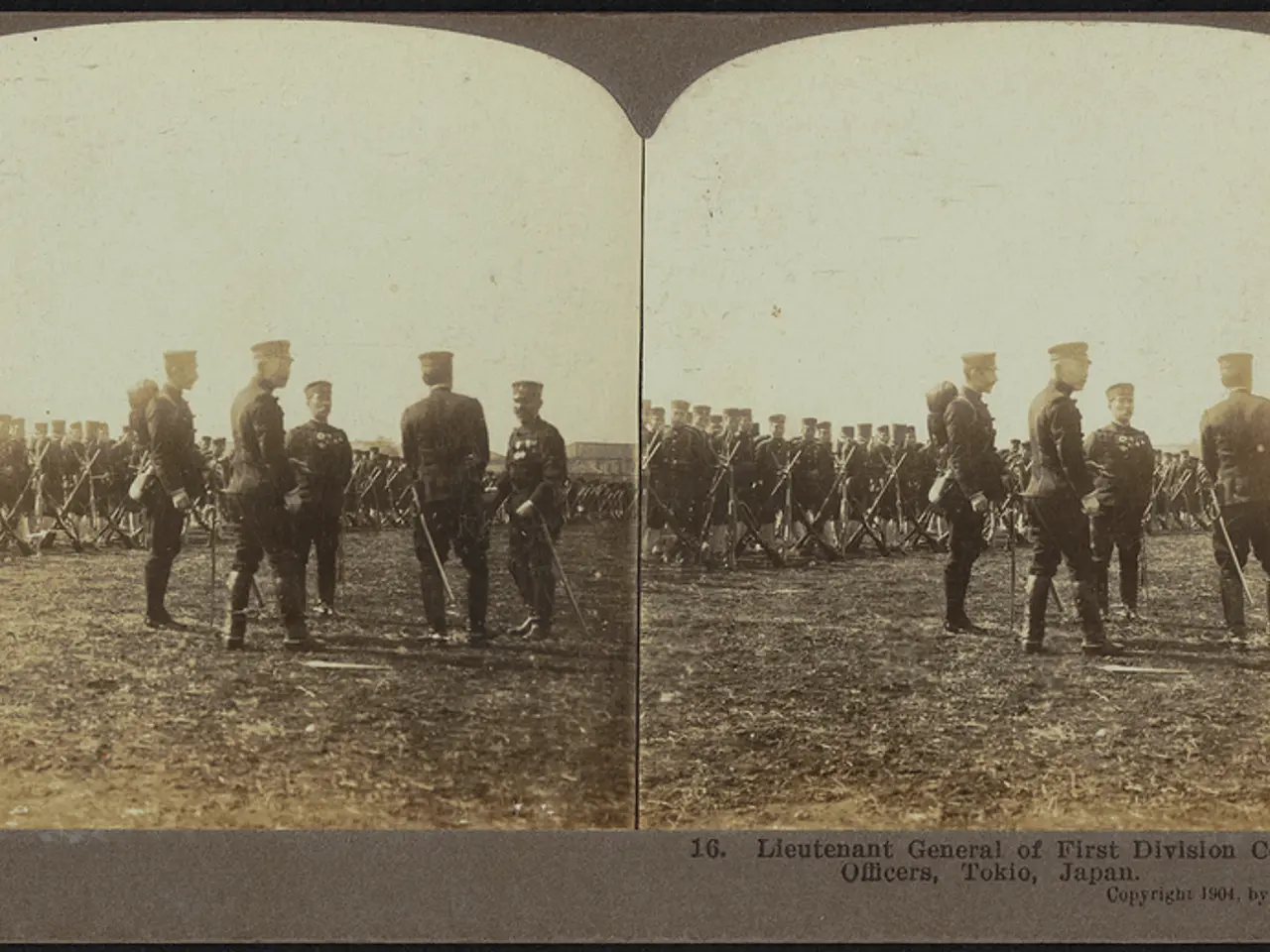Faith in Leadership within U.S. Military: Trust Towards Generals on an Individual Basis
In a recent article published in Dædalus, Dr. Max Margulies, the director of research at MWI, and Dr. Jessica Blankshain of the Naval War College, delve into the intricate factors that influence trust between individuals and the U.S. military.
The essay underscores the importance of understanding trust at an individual level, as it suggests that individual-level trust may be difficult to change. The authors argue that this understanding is crucial for policymakers to effectively address public trust in the military, which has significant consequences for defense-oriented policies.
The article challenges arguments that relate high trust to a widening gap between the military and civilian society. Instead, it presents new evidence for generational and ideational sources of military trust.
Dr. Margulies and Dr. Blankshain identify five key determinants of individual-level trust in the U.S. military:
- Personal Experiences and Interactions: Direct or indirect personal contact with military members, such as having family or friends who serve or served, tends to increase trust in the military institution.
- Political Orientation and Ideology: Political affiliation significantly shapes trust levels, with conservatives generally exhibiting higher trust in the military compared to liberals.
- Media Consumption and Information Exposure: The types and sources of information individuals consume about the military impact their perceptions and trust. Exposure to critical or negative portrayals can lower trust.
- Socio-Demographic Characteristics: Factors like age, gender, race, and socioeconomic status also correlate with differing levels of trust; for example, older respondents and men often show higher trust.
- Perceptions of Military Effectiveness and Integrity: Beliefs about how effectively the military performs its duties and adheres to ethical standards influence trust.
These determinants are discussed in the context of broader social and political trends, emphasizing that trust in the U.S. military is not monolithic but varies considerably across individuals based on these interrelated factors.
The findings of the essay reinforce mixed support for trust being linked to assessments of military success on or off the battlefield. The authors stress that understanding these individual-level determinants is essential for policymakers and military leaders to foster trust and maintain the military's role as a trusted institution in American society.
The article's image is credited to Spc. Joshua Taeckens. Dr. Jessica Blankshain received her doctorate in political economy and government from Harvard University. The co-authored article was published in Dædalus.
It's worth noting that the views expressed in the article do not reflect the official position of the United States Military Academy, Department of the Army, or Department of Defense.
- The findings of the article published in Dædalus suggest that policymakers should focus on individual-level trust in the military, as it provides insights into how to effectively address public trust, which is significant for defense-oriented policies and national security.
- In their co-authored piece, Dr. Max Margulies and Dr. Jessica Blankshain, both of whom are experts in their respective fields, discuss how the military's role as a trusted institution in American society can be maintained, highlighting five key determinants of individual-level trust.
- The policy-and-legislation arena and the broader political environment play a role in shaping trust levels, as seen in the authors' discussion of how political orientation and ideology can influence perceptions of the military, making it an important part of the general news and political discourse.








